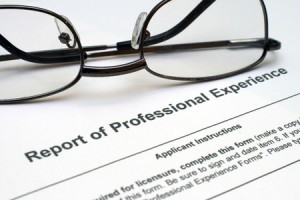In a word? Yes. In today’s world of increasing technology and decreasing human interaction, its easy to believe that a cover letter is no longer needed. However, if you stop to think about it, the number one way to get a job, by far, is still networking. Good old personal interaction.
 Companies today are becoming aware of the downfalls of the Applicant Tracking Systems (ATS). However, they are not planning on getting rid of them. When you submit your resume to a company via an ATS, you probably can’t attach a cover letter. These systems, in my opinion, do a better job of weeding out job candidates based on things such as GPA, minimum qualifications, bachelors degree, etc. They are not designed to assess the positive attributes.
Companies today are becoming aware of the downfalls of the Applicant Tracking Systems (ATS). However, they are not planning on getting rid of them. When you submit your resume to a company via an ATS, you probably can’t attach a cover letter. These systems, in my opinion, do a better job of weeding out job candidates based on things such as GPA, minimum qualifications, bachelors degree, etc. They are not designed to assess the positive attributes.
So if networking is still the best way to be successful in a job search, and the ATS is a necessary evil, it’s incredibly important that we use every tool at our disposal to help set us apart from the competition. One very powerful tool is the cover letter. Ideally, even when you apply using the Applicant Tracking System, you still want your resume and cover letter handed to the recruiter. Or even better, the hiring manager. How do you do that? Networking.
Once you’ve been successful getting your information into the hands of the appropriate people, that is when the importance of your cover letter becomes clear. This is your 30-second commercial, the “Why Me” statement that tells the employer in your own words what you can do for the company. Remember, gone are the days of telling a hiring manager what you want out of the job. They want and need to know how you will make their jobs easier. What can you do that is better than anyone else?
Some tips on writing an effective cover letter:
- Be brief: Remember, your resume tells the comprehensive story of your qualifications. A long letter will be discarded.
- Identify any connections: Let the reader know how you are connected. If you met them recently, state it. If you have a mutual connection, state it. Leverage anything that makes you stand out in their memory.
- Sell the “Why Me”: Articulate clearly and quickly what qualifications you possess that make you the best candidate for the job. Don’t just reiterate your resume. This is your chance to tell them “the rest of the story” or explain issues such as a gap in employment.
- Show your passion: Explain why you would love to work for the company. Clearly show how the company mission, culture, product, etc, align with your desires for a company. This will make you stand out from the others who simply write a generic cover letter.
Remember this rule: A generic resume and cover letter will get you a generic decline letter if you are lucky.
What are your thoughts on writing cover letters in this day and age of LinkedIn and personal websites? How do you feel candidates can best separate themselves apart? I’d love your thoughts.
OI Global Partners helps organizations and individuals with talent management needs ranging from search to career transition and outplacement to leadership development and executive coaching and more.
Susan Ruhl is managing partner of OI Global Partners – Innovative Career Consulting, Inc.

Comments are closed